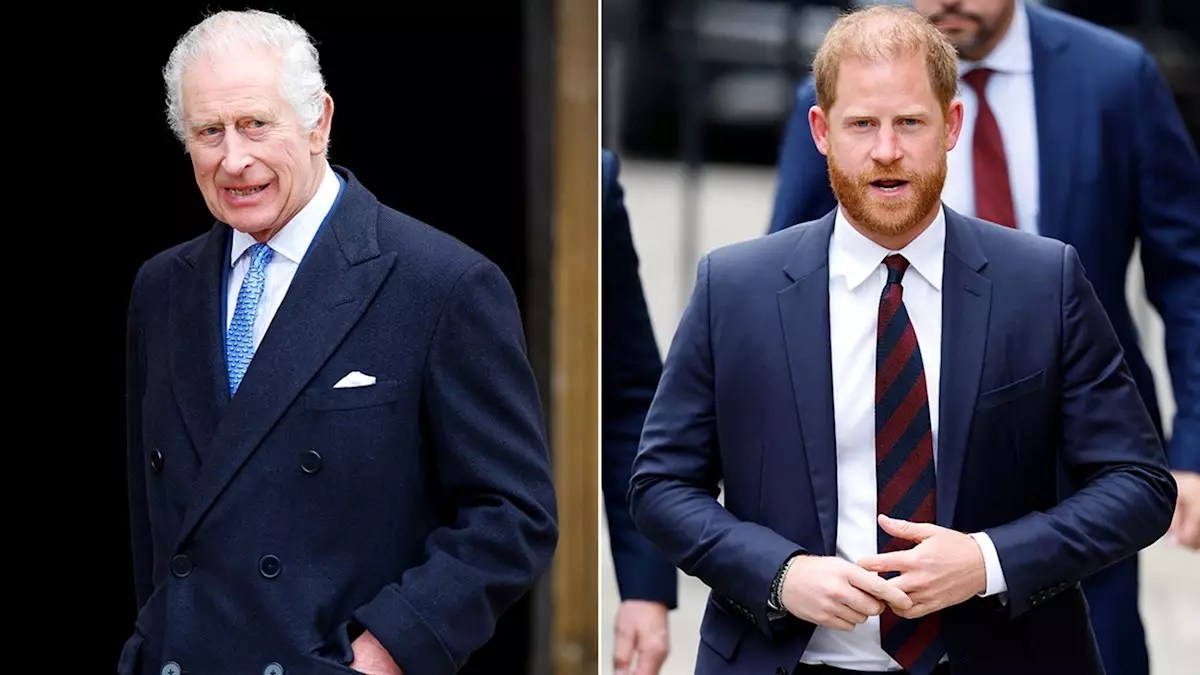The tension within the British royal family has reached a fever pitch, particularly in the wake of Prince Harry’s recent statements regarding his father, King Charles. Following a court ruling that ruled against Harry’s appeal concerning security arrangements, the Duke of Sussex articulated that his father held exclusive control over such decisions. This assertion came during an emotional BBC interview where Harry professed a yearning for familial reconciliation. What stands out here is not merely Harry’s pursuit of closure but the power dynamics within a royal family that is supposed to symbolize unity. This situation reflects a broader narrative concerning the monarchy’s relevance in today’s society and how interpersonal relationships impact public perception.
The Royal Response
Buckingham Palace responded to the escalating family drama with its customary reserve, asserting that legal decisions had undergone extensive scrutiny. This response reaffirms the principle that constitutional propriety prevails over familial ties, highlighting a systemic rigidity that often defines royal engagements. It leads one to question whether such protocols hinder personal relationships within the House of Windsor, potentially exacerbating the ongoing rift. By operating under strict adherence to constitutional frameworks, the palace may inadvertently contribute to the emotional strife of its members.
Furthermore, the Palace emphasized King Charles’ schedule with an upcoming trip to Canada, which is set against the backdrop of recent political changes. This dual role of monarch and public figure raises questions: can Charles effectively balance his obligations to the Crown while navigating the complex emotional terrain of his family? The juxtaposition of personal struggle and public duty seems starkly contrasted in his image, presenting a monarch perpetually pulled between duty and personal ties.
Excursions Beyond Borders
In light of these familial tensions, King Charles and Queen Camilla’s planned visit to Canada serves a dual purpose. While it aims to reinforce diplomatic ties with Canadian leadership following a recent election, it can also be seen as an effort to reaffirm the monarchy’s presence and relevance in Commonwealth realms. This trip comes after postponements due to health concerns—a timely reminder of life’s fragility amid royal proceedings.
The visit carries symbolic weight, especially as the King will attend the state opening of Parliament in Ottawa. Royal tours have historically aimed not only to strengthen diplomatic relationships but also to bolster the monarchy’s image. In a world increasingly critical of traditional institutions, public engagements appear essential for maintaining a favorable view of the Crown.
Legacy of Leadership
Moreover, the timing of these engagements emphasizes the precarious nature of leadership within the monarchy. The late Pope Francis’s passing shortly after his meeting with the royal couple serves as a poignant reminder of mortality and legacy. Charles, stepping into an era where he must not only preserve royal heritage but also revitalize its image, must grapple with the implications of generational divides, particularly as they pertain to Prince Harry’s candid pursuits of reconciliation.
As Harry articulates his desire for a healed family bond, one wonders if such aspirations can coexist with the rigid hierarchical landscape of the monarchy. Charles faces a complex legacy as he balances familial conflicts and the institutional obligation to uphold a revered monarchy.
The Path Forward
As the royal family continues to navigate these turbulent waters, their actions will set precedents for future generations. The question arises: can a member of the royal family not just advocate for familial bonds but actively work towards them amidst systemic constraints? Harry’s openness about his feelings towards his father presents a contemporary challenge to the age-old royal traditions that have often sidestepped transparency and emotional authenticity.
Ultimately, this ongoing saga encapsulates both the allure and difficulties of modern monarchy. The stakes are high, and how King Charles chooses to address both his public duties and personal relationships will define his reign and potentially reshape the royal narrative itself.


Leave a Reply